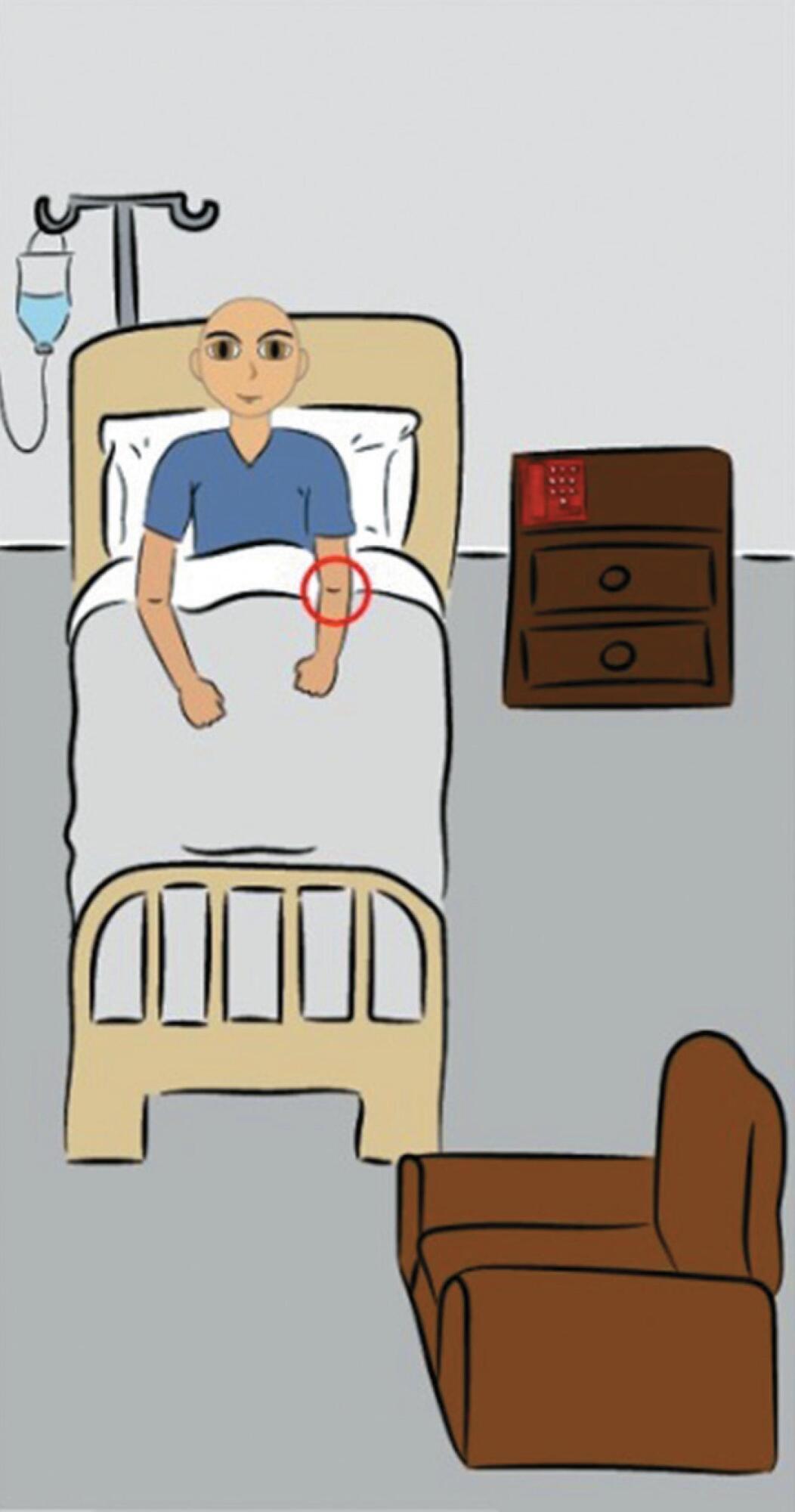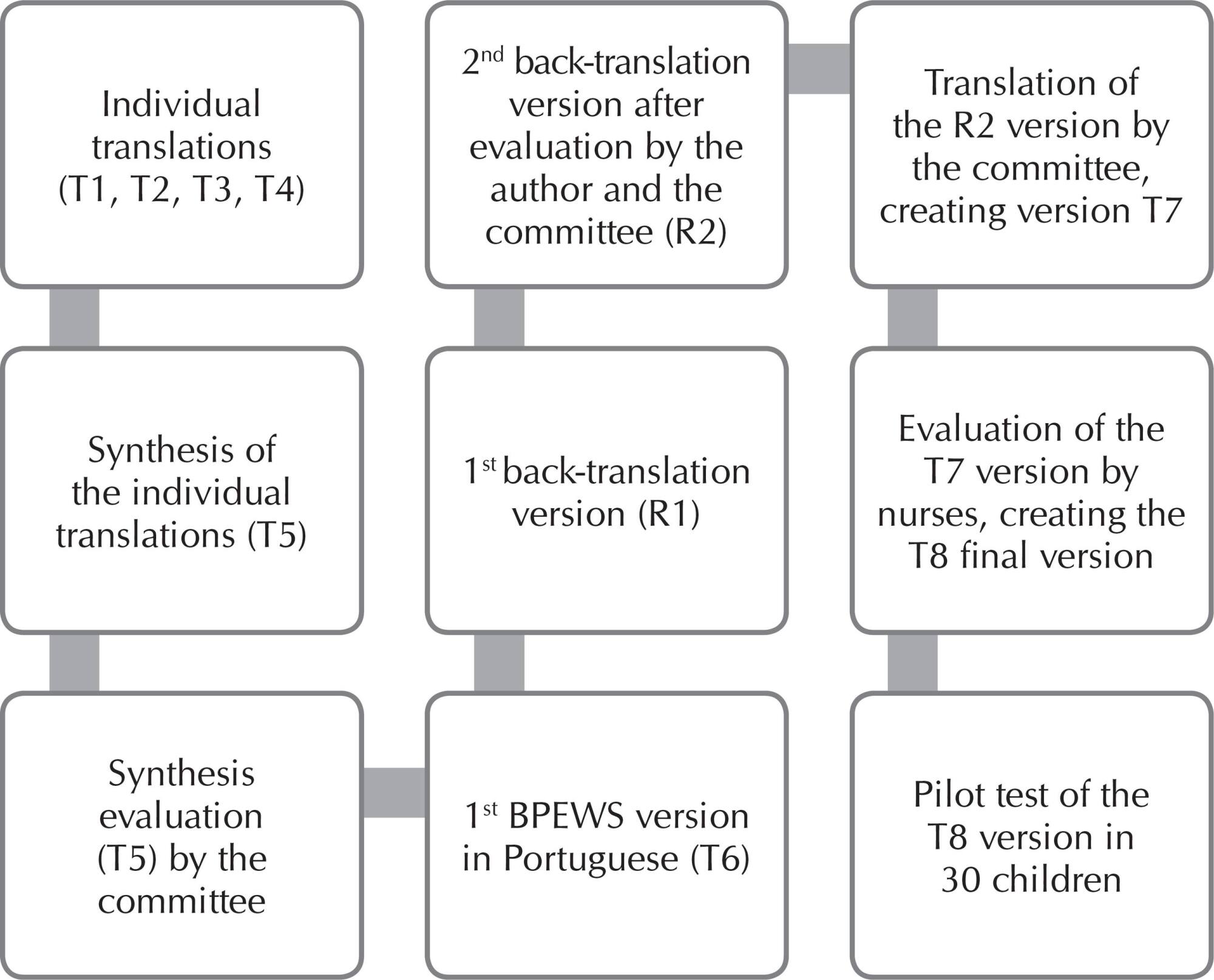-
ORIGINAL ARTICLE
Beliefs, values and practices of families in the care of hospitalized children: subsidies for nursing
Revista Brasileira de Enfermagem. 2020;73(suppl 4):e20190553
11-11-2020
Resumo
ORIGINAL ARTICLEBeliefs, values and practices of families in the care of hospitalized children: subsidies for nursing
Revista Brasileira de Enfermagem. 2020;73(suppl 4):e20190553
11-11-2020DOI 10.1590/0034-7167-2019-0553
Visualizações0Ver maisABSTRACT
Objective:
To know the beliefs, values and practices of families in the care of hospitalized children.
Method:
Qualitative study developed at the Pediatrics Unit of a University Hospital in southern Brazil through non-participant observation, participant observation and interview with children’s family members. The methodological framework of Ethnonursing was adopted. Data were coded, classified and scrutinized to identify saturation of similar or different ideas and patterns, and recoded by making theoretical formulations and recommendations.
Results:
Beliefs, values and practices of families depend on cultural references and are manifested in the care with feeding, clothing and hygiene, maintenance of sleep and rest, presence, care with medication and exercise of religious belief.
Conclusion:
Family members care for the hospitalized child based on their cultural reference and it is important that nurses take this aspect into consideration during care practice. Cultural care aggregates knowledge and can be considered a new paradigm for nursing care that allows an affective, reflective, human, empathic relationship between nurse/child/family.
-
ORIGINAL ARTICLE
Meanings assigned by families about children’s chronic disease diagnosis
Revista Brasileira de Enfermagem. 2020;73(2):e20180742
03-30-2020
Resumo
ORIGINAL ARTICLEMeanings assigned by families about children’s chronic disease diagnosis
Revista Brasileira de Enfermagem. 2020;73(2):e20180742
03-30-2020DOI 10.1590/0034-7167-2018-0742
Visualizações0Ver maisABSTRACT
Objectives:
to understand the meanings assigned by family caregivers about children’s chronic disease diagnosis.
Methods:
qualitative study, which used as theoretical framework the Symbolic Interactionism, and methodological, the Grounded Theory. It was held in a pediatric unit in Southern Brazil, in 2016, through interviews submitted to open and axial analysis, with the participation of 20 family caregivers of hospitalized children.
Results:
relatives, interacting with the nursing/health staff, perceive children’s disease at birth. They are diagnosed with chronic disease by the physician and deny it. Subsequently, they accept and seek information on care.
Conclusions:
the results pointed out the stages that relatives experience by assigning meanings to about children’s chronic disease diagnosis. These meanings provide subsidies for nurses’ actions, which need to be aware of children’s and family’s needs in order to offer comprehensive and humanized care.

-
ORIGINAL ARTICLE
Care management for the hospitalized child with chronic cancer pain: intervening conditions
Revista Brasileira de Enfermagem. 2019;72(suppl 1):181-188
02-01-2019
Resumo
ORIGINAL ARTICLECare management for the hospitalized child with chronic cancer pain: intervening conditions
Revista Brasileira de Enfermagem. 2019;72(suppl 1):181-188
02-01-2019DOI 10.1590/0034-7167-2017-0514
Visualizações0Ver maisABSTRACT
Objective:
To understand the intervening conditions of care management for the hospitalized child with chronic cancer pain.
Method:
Qualitative research, anchored in the methodological and theoretical frameworks, respectively, Grounded Theory and Complex Thinking. The semi-structured interview and non-participant observation were used to collect the data. Twenty-one health professionals, organized in three sample groups: nurses; nursing technicians; and professionals of the multiprofessional health staff.
Results:
They emerged as intervening conditions of care management: human resources and materials, teamwork, absenteeism, professional relocation, professional qualification, family, playful, dialogue, empathy and caring relationship.
Conclusion:
It was understood as limiting conditions for care management: deficits of human resources and materials, absenteeism, ineffective teamwork, professional relocation, and insufficient professional qualification. On the other hand, they were presented as facilitating conditions: adequate professional knowledge, effective teamwork, dialogue, empathy, playful and affective relationship with the child.
-
EXPERIENCE REPORT
Application program to prepare child/family for venipuncture: experience report
Revista Brasileira de Enfermagem. 2018;71(suppl 3):1474-1478
01-01-2018
Resumo
EXPERIENCE REPORTApplication program to prepare child/family for venipuncture: experience report
Revista Brasileira de Enfermagem. 2018;71(suppl 3):1474-1478
01-01-2018DOI 10.1590/0034-7167-2017-0386
Visualizações0Ver maisABSTRACT
Objective:
To report the experience of development of an application program to prepare child and family for venipuncture.
Method:
Experience report on an application program developed in the professional nursing master's degree program in partnership with engineering undergraduate students.
Results:
The application program allows the child to understand the venipuncture procedure in a ludic and interactive manner. Its development occurred in three stages: identification of client's needs, definition of components, and prototype elaboration.
Final considerations:
The application program, besides being directed to care and education of children and families, is able to meet the nurses' needs to prepare them for venipuncture. Moreover, it is worth mentioning the importance of multidisciplinary approach for the concretion of similar projects.

-
RESEARCH
Nursing team’s conceptions about the families of hospitalized children
Revista Brasileira de Enfermagem. 2017;70(5):904-911
01-01-2017
Resumo
RESEARCHNursing team’s conceptions about the families of hospitalized children
Revista Brasileira de Enfermagem. 2017;70(5):904-911
01-01-2017DOI 10.1590/0034-7167-2016-0233
Visualizações0Ver maisABSTRACT
Objectives:
to describe nursing team care and discuss the nursing team’s conception of companion families of hospitalized children. The study was based on the theoretical framework of Collière’s theory of nursing care identity.
Method:
this was a qualitative study with 14 members of a nursing team, conducted through an unstructured group interview. Thematic data analysis was employed.
Results:
habitual and repair care was delegated to families, regardless of the child’s clinical condition.
Final considerations:
the team’s official discourse about the families of hospitalized children, as recommended by the literature, refers to the family’s alterity and participation in care provision, with sights on discharge and defending family participation as beneficial to children. In practice, however, the nursing staff makes concessions about the presence of chaperoning families and delegates care.
-
RESEARCH
Influence of Therapeutic Play on the anxiety of hospitalized school-age children: Clinical trial
Revista Brasileira de Enfermagem. 2017;70(6):1244-1249
01-01-2017
Resumo
RESEARCHInfluence of Therapeutic Play on the anxiety of hospitalized school-age children: Clinical trial
Revista Brasileira de Enfermagem. 2017;70(6):1244-1249
01-01-2017DOI 10.1590/0034-7167-2016-0353
Visualizações0ABSTRACT
Objective:
To evaluate the effects of Dramatic Therapeutic Play (DTP) technique on the degree of anxiety in hospitalized school-age children.
Method:
Randomized clinical trial performed in two hospitals ofSão Paulo, between May and October 2015. The intervention consisted of the application of DTP and the outcome was evaluated through the Child Drawing: Hospital (CD: H) instrument. The Wilcoxon-Mann Whitney, Corrected t, Fisher’s exact and Chi-square tests were used in the analysis. Statistical significance was set at 5%.
Results:
In all, 28 children participated in the study. The majority of children (75%) had a low anxiety score, with a mean CD: H score of 73.9 and 69.4 in the intervention and control groups respectively, and with no significant difference.
Conclusion:
Children submitted to DTP had the same degree of anxiety as those in the control group. However, it is suggested that new studies be performed with a larger number of children in different hospitalization scenarios.
Palavras-chave: AnxietyGames and ToysHospitalized ChildPediatric NursingRandomized Controlled Clinical TrialVer mais
-
PESQUISA
Nursing care through the perception of hospitalized children
Revista Brasileira de Enfermagem. 2016;69(4):646-653
01-01-2016
Resumo
PESQUISANursing care through the perception of hospitalized children
Revista Brasileira de Enfermagem. 2016;69(4):646-653
01-01-2016DOI 10.1590/0034-7167.2016690405i
Visualizações0ABSTRACT
Objective:
to describe the perception of hospitalized children of school age, on nursing care and understand what are, from their perspective, the best ways to address it to when performing such care.
Method:
qualitative, descriptive, exploratory research, with concepts of Vygotsky used as theoretical framework. The data collection occurred through interviews mediated by drawings and was performed with ten school children, with the interview later transcribed and submitted to a thematic analysis.
Results:
showed the importance of playing during hospitalization, of a friendly and caring approach and providing explanations regarding the performed procedures.
Conclusion:
nursing professionals need to consider how the children would like to receive the care being provided, so that their singularities are respected, characterizing nursing actions according to a perspective of the whole human being.
Palavras-chave: Child CareHospitalized ChildNursing CarePediatric NursingProfessional-Patient RelationshipVer mais -
PESQUISA
Translation and adaptation of a pediatric early warning score
Revista Brasileira de Enfermagem. 2016;69(5):888-896
01-01-2016
Resumo
PESQUISATranslation and adaptation of a pediatric early warning score
Revista Brasileira de Enfermagem. 2016;69(5):888-896
01-01-2016DOI 10.1590/0034-7167-2015-0096
Visualizações0Ver maisABSTRACT
Objective:
to translate and adapt the BPEWS for the Portuguese language, with the purpose of verifying its applicability in the Brazilian context studied.
Method:
methodological study guided by international and nationally accepted recommendations for translation and adaptation of health measurement instruments. Stages of conceptual, item, semantic, operational and pre-test equivalence are described for obtaining the BPEWS Portuguese version to be used in Brazil.
Results:
the BPEWS version translated and adapted for Brazilian Portuguese (BPEWS-Br) identified, in the pilot study, that 26.6% of children were presenting warning signs for clinical deterioration.
Conclusion:
the BPEWS-Br seems to be applicable for the context studied, and its use might help nurses in the recognition and documentation of warning signs for clinical deterioration in hospitalized Brazilian children.




